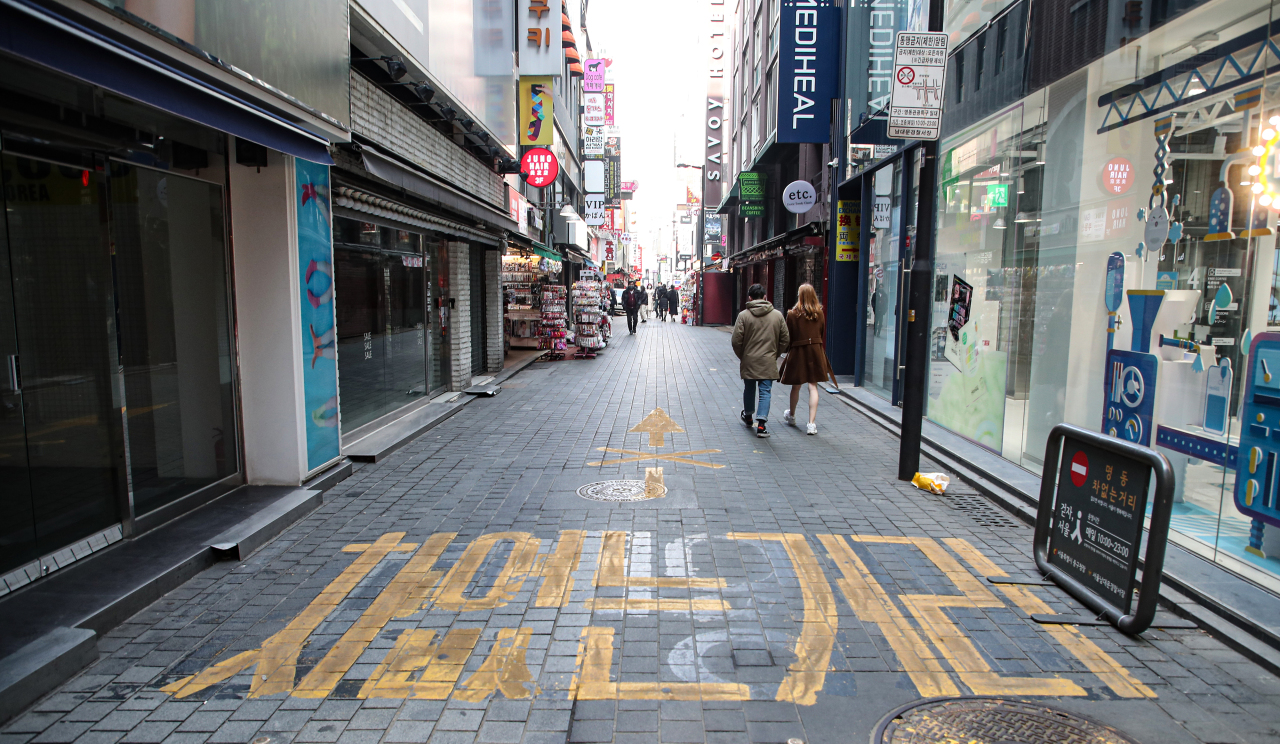 |
This file photo, taken Feb. 13, 2021, shows an almost empty street of Seoul's shopping district of Myeongdong amid the pandemic. (Yonhap) |
South Korea's industrial output declined for the first time in eight months in January, data showed Tuesday, in the latest sign that the country's economic recovery momentum still remains weak amid the pandemic.
The industrial output declined 0.6 percent in January from the previous month, compared with a 0.4 percent on-month gain in December last year, according to the data compiled by Statistics Korea. But from a year earlier, it gained 1.4 percent.
It marked the first on-month decline since May 2020, when industrial production fell 1.5 percent.
Production in the mining, manufacturing, gas and electricity industries declined 1.6 percent on-month in January from a 2.7 percent gain the previous month.
Last month, production in the manufacturing sector declined due largely to falls in output of liquid crystal display (LCD) panels. Service output also fell for the second straight month amid a resurgence in COVID-19 cases.
Service output dipped 0.2 percent on-month, compared with a 1.1 percent on-month fall in December.
"Service output continued to remain sluggish amid the pandemic, while production in the manufacturing industry partly declined on-month due to the impact of sharp growth in December," Eo Woon-sun, a senior Statistics Korea official, said at a press briefing.
But consumption rose for the second straight month in January despite tougher virus curbs over a flare-up in new coronavirus cases.
Retail sales grew 1.6 percent from a month earlier, compared with a 0.1 percent on-month gain in December, the data showed. It marked the fastest growth since August last year.
The statistics agency said demand for electronic goods and clothes increased last month amid the prolonged pandemic.
Facility investment increased 6.2 percent on-month in January, compared with a 1.9 percent gain the previous month.
Following slumps caused by the pandemic, the South Korean economy is on a recovery track on robust exports. But the recovery remains uneven across sectors, with service segments, such as restaurants and accommodations, taking a beating from the virus outbreak.
The country reported the biggest job loss in more than two decades last year, stung by the pandemic.
"The latest move to ease tougher virus curbs and improve consumer sentiment are good signs for the economy. But uncertainty also persists due to COVID-19 infections," the finance ministry said in a statement.
Asia's fourth-largest economy contracted 1 percent last year, the first retreat since the 1997-98 Asian financial crisis. But its contraction was far smaller than other major advanced economies.
The Bank of Korea (BOK) forecast the Korean economy to grow 3 percent this year on the back of solid exports. (Yonhap)








